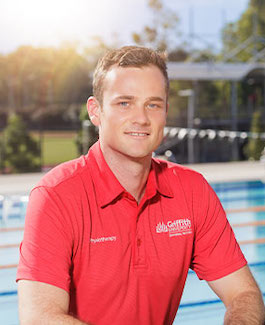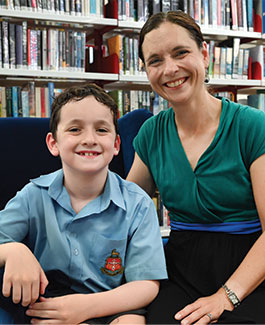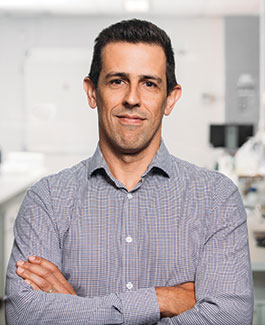Breaking the cycle of disadvantage for women in prison
Women with dependent children are the fastest growing group of Australia’s prison population, a challenging trend that demands new approaches to reduce reoffending and putting an end to intergenerational cycles of adversity.
We are incredibly grateful to the Paul Ramsay Foundation for the donation and its commitment to helping Australians defy and break the cycle of disadvantage.
Prof Susan Dennison
The Transforming Corrections to Transform Lives project, led by Professor Susan Dennison, brings together experts from the Griffith Criminology Institute (GCI) to work closely with Queensland Corrective Services (QCS).
“Prison doesn’t cause all the challenges these families face, but it does present an opportunity to start working with mothers and their children,” said Susan.
“Typically, mothers enter prison because of a devastating lifecycle of disadvantage and serious adversity that gets worse when they leave.
“Their children experience this adversity too, as well as other as strains like grief and trauma from separation, housing and school instability, stigma and entrenched social exclusion.”
Former Queensland Corrective Services Commissioner Peter Martin, now Professor of Practice at GCI, said women in prison are overwhelmingly victims of domestic and family violence.
“We are aware that women have a vastly different trajectory leading to incarceration than men, with common features of poverty, childhood abuse and abusive relationship,” he said.
“We also know that having a parent in prison makes a child many more times likely than their peers to end up incarcerated themselves.”
The project aligns with QCS’ commitment to reform service delivery for women, with a more responsive and informed approach, that reckons with the unique challenges they face.
Professor Dennison says to meet these goals, rehabilitative and correctional approaches in Australia need to change.
Commencing in 2020, the research team developed and refined a new model of support, based on an 18-month co-creation phase and a series of workshops with mothers in prison and stakeholders in the community.
The workshops focused on the needs of mothers before imprisonment, during custody and after release, as well as the needs of children and young people who experience the imprisonment of their mothers.
As the Transforming Corrections to Transform Lives project moves into its trial phase, Professor Dennison says their work would not be possible without the multi-million-dollar support of the Paul Ramsay Foundation, an organisation whose mission is to drive positive change.
“We are incredibly grateful to the Foundation for the donation and its commitment to helping Australians defy and break the cycle of disadvantage.
“This is the largest single philanthropic pledge ever received by Griffith and this pledge of support will allow us to pilot the Transform Lives Program, introducing it to women’s prisons and communities in Southeast Queensland and Townsville, alongside QCS, to support incarcerated mothers and their children and improve outcomes for their families.”
Paul Ramsay Foundation CEO, Professor Kristy Muir said the Foundation wants mothers and children to fulfill their potential in life and to live with safety and stability.
“This program is about finding ways to break the intergenerational cycles of disadvantage that can lead to offending and incarceration, giving young mothers the opportunity to reach a better outcome, for themselves, but more importantly, for their kids.”
More than $100 million of philanthropy has already been secured to create a brighter future for all.
Read more impact stories

Brighter Future scholarship recipient
Jake Philpott’s interest in physiotherapy is very personal. When he was just three, his father sustained a back injury that led to a lifetime of chronic pain and physical disability. To make matters worse, the family didn’t have access to adequate healthcare.

Advancing outcomes for autistic children
As young parents, Elga and David Dyer had no idea what to expect with a newborn. Their journey to diagnosis and their lived experience with autism led to the development of a scholarship committed to training the next generation of autism researchers.

Renewed hope for schizophrenia sufferers
This innovative research is paving the way for a better future for schizophrenia sufferers, developing potential new drugs and treatments using patient-derived stem cells, thanks to a donation from a private donor.